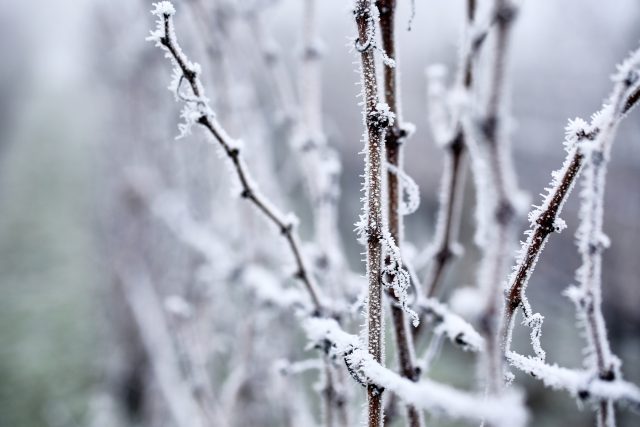This website uses cookies so that we can provide you with the best user experience possible. Cookie information is stored in your browser and performs functions such as recognising you when you return to our website and helping our team to understand which sections of the website you find most interesting and useful.
Anti-frost scheme to be deployed in UK vineyards
A project to improve frost management in UK vineyards has received £300,000 from the Department for Environment, Food & Rural Affairs (DEFRA).

As climate change results in vines going through bud break earlier, the risk of sudden spring frosts destroying the buds and decimating yields is a particular concern for growers in the burgeoning British wine sector. It’s also an issue because the two most widely-planted grape varieties in the UK, Chardonnay and Pinot Noir (together making up 60% of the country’s area under vine) are both early budders, making them particularly vulnerable to sub-zero temperatures in the spring.
The 2021 vintage in particular proved to be a challenge for producers, with frost being one factor to severely dent yields (certainly not an issue with the record 2023 harvest).
In an effort to counteract this growing problem, the first step is to identify where and when frost will strike.
The project, which is being delivered by Innovate UK, is called ‘Smarter Forecasting, Communication and Management of Frost Risk in Vineyards’ and will run for two years.
Farming Minister Mark Spencer MP told the drinks business: “The government’s £270 million Farming Innovation Programme is ensuring that farmers and growers have access to the latest technologies to help them boost productivity, improve food security and drive innovation.”
“I am delighted that this project is using its share of the latest £12.2m funding round to develop innovative new technology that will help vineyard managers improve how they respond to frost and enhance the long-term resilience of the UK wine industry,” Spencer added.
Sensors, developed by manufacturer Terraprima, will be used to assess the risk of frost in real time, with an app delivering frost alerts to winegrowers’ mobile devices.
Eliot Dixon, head of agri-tech engineering at Agri-Epi Centre, one of the companies leading the project, said that it would deliver data on the frost risk with “a precision never achieved previously”: “This uses a fusion of weather modelling, IoT [Internet of Things] sensors and remote sensing to create a robust and commercially relevant solution that shows the very best of UK agri-tech.”
The sensors have been installed across a number of vineyards, including Tanhurst Estate in Surrey, Ridgeview in East Sussex, Dillions in West Sussex, and JoJo’s in Oxfordshire. The sites participating were a combination of those that volunteered for the project, and those already working with partners of the project, such as Terraprima. If successful, the project can then be rolled out more widely.
Among the other backers of the project is trade body Wine GB and viticultural education institution Plumpton College. The latter’s vineyard in East Sussex has also had sensors installed.
Plumpton College director Sam Linter said: “Spring frost is a significant threat for many grape growers in the UK, requiring understanding on forecasting and management options. Being involved in such an innovative frost management project, bringing together different approaches and modelling systems, gives our students exposure to the current and developing technologies.”
“This project will give vine-growers greater control of their frost management and hopefully their sleep schedule,” added Wine GB membership engagement manager Phoebe French.
Frost can devastate the yields of vineyards in cooler climates, as Burgundy’s most prestigious producer, Domaine de la Romanée-Conti, discovered with its 2021 vintage.
What producers can actually do once a frost alert has been identified is a different matter. While the traditional measure is to place candles next to the vines, keeping them warm, this is costly and highly laborious to implement and maintain.
In Chablis, a region that is no stranger to sudden cold snaps in the spring, the preferred methods today are heated wires going through the vines, and windmills that ventilate the vineyard, churning cold air and warmer air, as the drinks business discovered when it interviewed Chablis Commission president Paul Espitalié.

